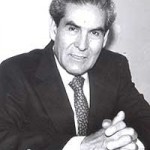Hi everyone! I finally got around to typing out some thoughts about Quijano’s article from Week 2. Please reply if you get the chance, it would be fun to start kind of a dialogue…
 As I began reading, I was excited! “What is termed globalization is the culmination of a process that began with the constitution of America and colonial/modern Eurocentered capitalism as a new global power” – Yes! Quijano goes on to describe that the global power structure that began in colonial times and that we now call globalization is fundamentally based in the classification of people by race. This is called the “coloniality of power”, and is basically a concise way of describing the global racial order of things. Makes sense!! Modernity and the modern world system began to form with the colonization of America and for this reason, modernity developed out of this relation – “In other words, starting with America, a new space/time was constituted materially and subjectively: this is what the concept of modernity names” (547).
As I began reading, I was excited! “What is termed globalization is the culmination of a process that began with the constitution of America and colonial/modern Eurocentered capitalism as a new global power” – Yes! Quijano goes on to describe that the global power structure that began in colonial times and that we now call globalization is fundamentally based in the classification of people by race. This is called the “coloniality of power”, and is basically a concise way of describing the global racial order of things. Makes sense!! Modernity and the modern world system began to form with the colonization of America and for this reason, modernity developed out of this relation – “In other words, starting with America, a new space/time was constituted materially and subjectively: this is what the concept of modernity names” (547).
Wait a second. Note here there is only ONE modernity. It is not purely European, nor does it occur in all cultures, but it is singular (546). This is kindof problematic, because later on in the essay, there can also be only one kind of modern nation state as well! Most of Latin America is doing it wrong according to Quijano, because they have their colonial blinders on, buying into Eurocentrism and all that.
I feel pretty uncomfortable with this idea, and the notion that democratization and the modern (Western) nation state should really be the goal. Especially nowadays…the modern nation state isn’t doing so well in Europe or North America. I think some of this has to do with the fact that Quijano is writing in the year 2000, or likely before – before 9/11, before the US mortgage crisis, just after Chavez was elected, but before Morales, and before people took to the streets in countries all over the world in the Arab spring, Maple spring, and so on.
Also, Quijano problematizes one Euro-focused trajectory to modernity, but then sortof reinforces it by making only one possible trajectory again. Don’t we want to disrupt this singular trajectory? Isn’t that the point of postcolonial theory? With only one trajectory Quijano also seems to say that only one kind of nation state “works.” Isn’t it possible to have multiplicity in terms of “nation” just like for “capitalism”? We know that capital is not so uniform, isn’t this the case with the nation?
Another thing is, Quijano takes “Latin America” as an unproblematized generic whole. Obviously there is a lot of diversity there. How would this coloniality of power play out in diverse Latin American contexts? When and why does “America” get separated into the United States and Latin America in this formulation? I gather it has to do with race, since for Quijano this is one of the keys to the coloniality of power, but I am not clear on that.
Before you think I am only here to hate on Quijano, I should say that I really like the America-focussed take on colonialism and globalization, and thinking about how areas of the world or megaconcepts like modernity are co-constituted. I think this fits really well with our theme and with my own work – showing how seemingly distant places are co-produced, interconnected, produced through connection, etc. This adds even more to it: how places and peoples might be unequally ranked based on race – the coloniality of power.
See you all at the next meeting!
